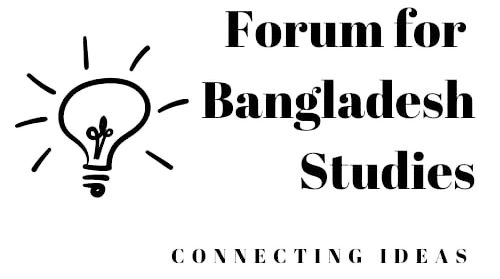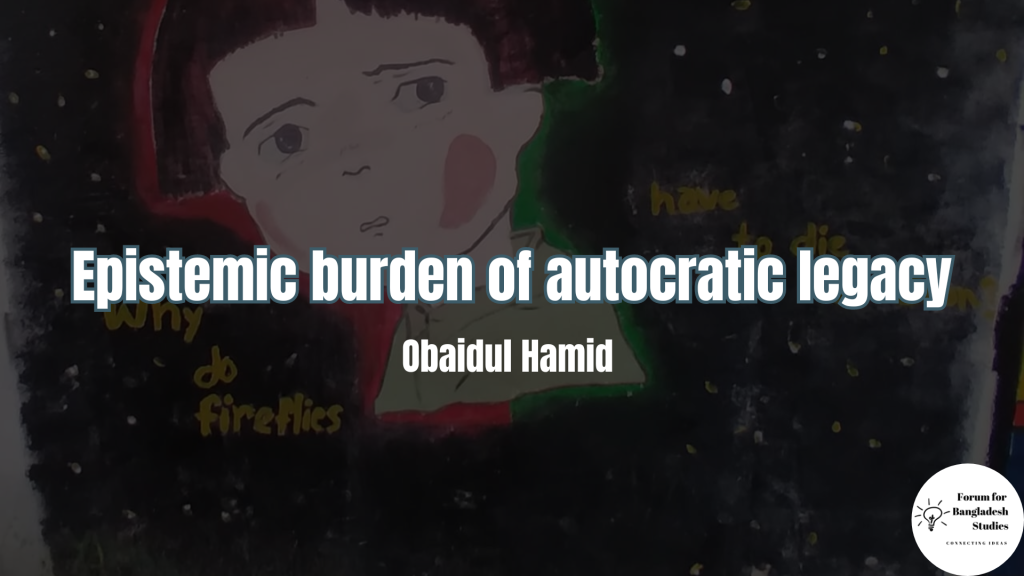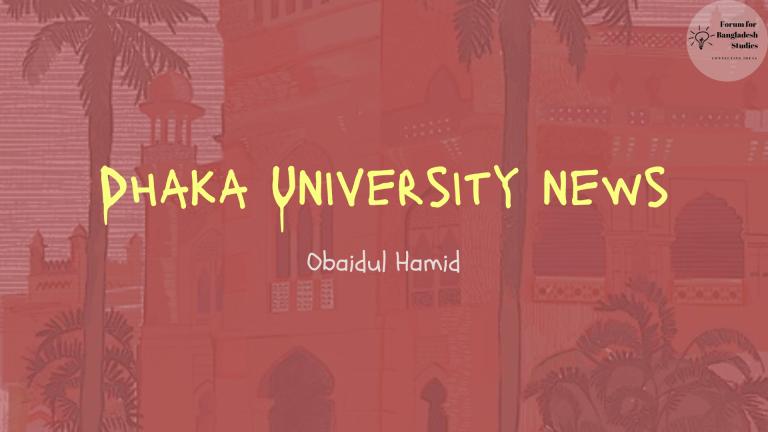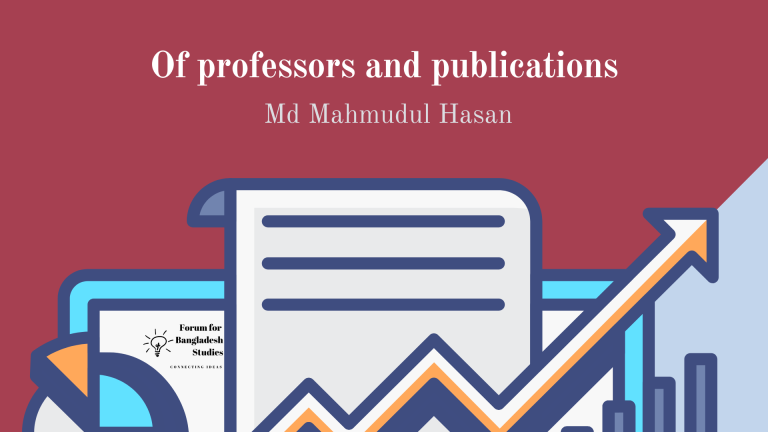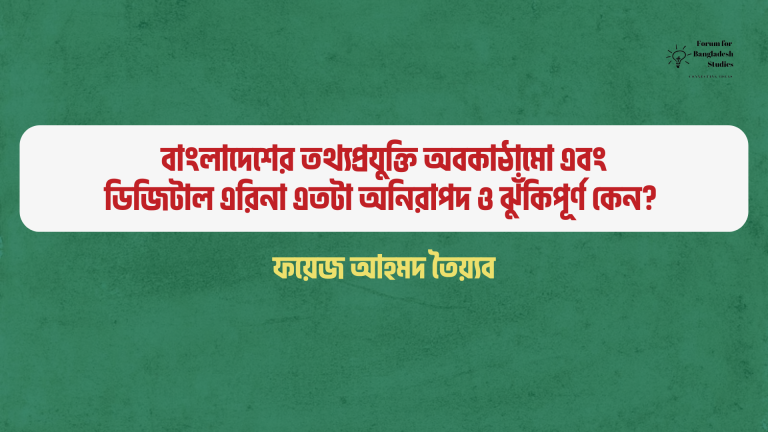AS A knowledge worker, I can’t speak against knowledge and knowledge-making. I admit that every time I have an academic work published, I feel a unique kind of pleasure. Every product of intellectual labour potentially benefits human society; it also contributes to building knowledge economies in a competitive world.
And yet I would critique a Herculean body of knowledge that was constructed during Hasina’s 15-year autocratic rule in Bangladesh. I consider this knowledge an epistemic burden in the post-autocratic era.
Yes, I am talking about the mountain of knowledge about the ‘father of the nation’ — Sheikh Mujibur Rahman. His unique role in our 1971 national independence is undisputable. This was evidenced by people’s unquestioned trust in him when he returned to independent Bangladesh from imprisonment in West Pakistan. At the same time, I will never accept that a nation’s independence can be a one-man show.
The future progeny of a nation must know its history and all its architects who played (and continue to play) different roles. There can’t be any question about knowing Bangabandhu (and other leaders) and passing him on to future generations. The question is: What knowledge should I create about him, how, and how much?
Knowledge never comes free. Producing knowledge about a subject is a political as well as an economic question. It should also be a moral or ethical consideration. Any political decision on creating and practicing knowledge in an area needs to be subjected to rigorous economic and ethical scrutiny.
The sheer volume of knowledge that was created about Bangabandhu is probably unique. I can’t think of such a body of knowledge about any other father of the nation created through autocratic patronisation. I feel incapable of even outlining this colossal epistemic bulk. I can give only a few examples.
If I am not mistaken, every school in Bangladesh had an obtrusive ‘Mujib Corner’ that displayed Bangabandhu. Students at every school took pledges at morning assemblies, which acknowledged him as our only hero. Most textbooks produced by the National Curriculum and Textbook Board have the Mujib logo on the cover page. This logo was also used on the official letterhead of many government departments.
At the annual Ekushey book fair, the highest number of books had to be displayed on Bangabandhu. The bookstall selling these books must be the largest, attracting the maximum number of ‘Bangabandhu lovers’.
How many educational institutions and other entities have Bangabandhu in their names? It’s almost like we have Bangabandhu everything — from tunnels to satellites, from bridges to convention centres, from schools, colleges, and universities — you name it.
The task of counting how many of his images — on posters, digital and non-digital signs, etc. — were displayed in the public domain in Bangladesh would be mind-boggling. No matter where you cast your eyes in urban or rural landscapes, you could see him. How many of his images did we see at the airport in Dhaka? As you got off the plane and walked to the end of the boarding bridge, you were welcomed to Mujib’s Bangladesh with dozens of them.
In June 2024, I was waiting at the domestic section of the Dhaka airport when my flight was delayed. I found the refurbished waiting lounge attractive. There was a bookcase in one corner. As I looked for something to read, I couldn’t find anything that was not about him.
I thought Bangabandhu’s presence would be scarce in the private sector, which is defined by market logic and state deregulation. I was wrong. The hotel where I stayed during my 2024 research trip to Dhaka had a dedicated room for Mujib. It had a multimodal display — photos, audios, and videos. The audio and videos played for 24 hours. I heard them early in the morning as I walked to the prayer room for fajr prayer.
It’s not all about making him visible and ubiquitous and giving him a larger-than-life and beyond-death existence. He is also the dominant subject of academic study and pedagogy. My analysis of the English book for Classes 9–10 showed that out of 192 pages in the book, 16 contained material related to Bangabandhu, which makes it 8 per cent. Almost every textbook also contained extra pages about Bangabandhu and Sheikh Hasina’s development projects. These pages had nothing to do with teaching and learning but would have cost taxpayers millions.
This epistemic extravaganza ran as a discursive parallel to autocratic overdoing in the political domain. It is common for autocratic rulers to exploit knowledge and discourse, among other things, to sustain their authoritarian control. Autocracy also creates a tribe of intellectual sycophants who contribute to knowledge-making and seek the blessings of their autocratic master.
However, the worthlessness of this epistemic megalomania has already been proven beyond question. The students of the quota movement must have swum in this ocean of knowledge at school, in the media, in politics, in marketplaces, in the job market, and in the hospital. However, it appears that they swam without wetting their bodies in the pool of imposed knowledge.
The epistemic empire of the autocrat collapsed on August 5. The celebration of the ‘second independence’ led to de-awamising the Awami League and de-constructing the despotic creation of knowledge. Reflecting the recent spirit of decolonising in other parts of the world, Mujib statues were broken down. Some see this as disrespectful and unpardonable. However, the same people would have been silent endorsers of the despotic violence in the past 15 years.
What is the epistemic value of the hundreds of books and other knowledge products about Bangabandhu? Who is going to read them in the post-Hasina era? Can this knowledge be taken seriously?
I have serious doubts. Like the regime itself, the construction of the epistemic infrastructure was also an unquestionable process. But questioning is essential in knowledge-making, and that is why the peer review system is in place. Did the making and remaking of Bangabandhu — demanded by autocracy and supported by slavish intellectuality — go through the necessary critical scrutiny? In the absence of this essential process, the products of knowledge are likely to be turned into epistemic garbage waiting to be disposed of.
There is probably natural justice in all this. The knowledge failed to impact social cognition and psychology in the past, and it’s unlikely to have a different impact in the future. There may be lessons here about the knowledge that comes out of the womb of autocracy and the pen of intellectual mercenaries.
Originally published: New Age, 24 August 2024
